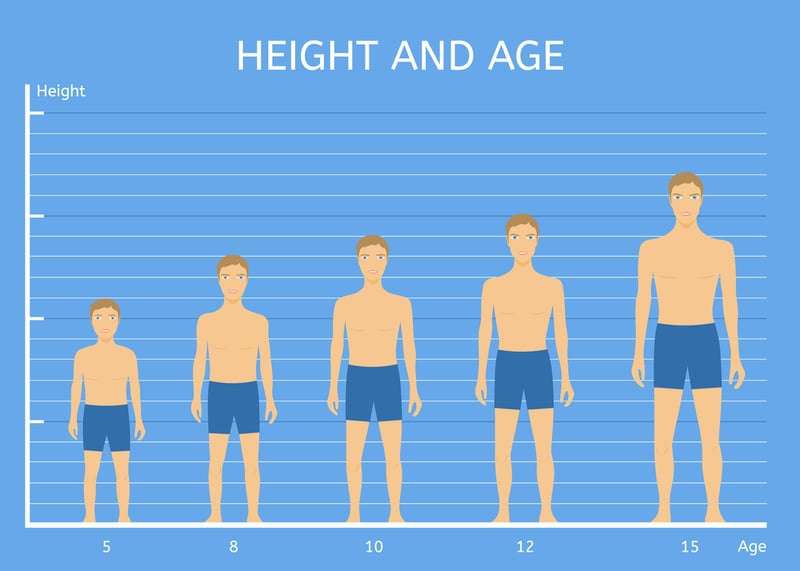Title: Dealing with Low Height: Signs, Symptoms, Causes, Risk Factors, Diagnosis, Prevention, Diet, Lifestyle, and Homoeopathic Medicine
Introduction:
Height plays a significant role in our overall appearance and self-confidence. While genetics largely determine our height, some individuals may experience low height, also known as short stature. Understanding the signs, symptoms, causes, risk factors, diagnosis methods, prevention strategies, diet and lifestyle considerations, and exploring the potential role of homoeopathic medicine can help individuals address low height concerns. In this blog post, we will delve into the key aspects of low height and its holistic approach to treatment.
Signs and Symptoms of Low Height:
1. Short stature: Individuals with low height are typically shorter than their peers.
2. Delayed growth: Slower growth rate compared to others of the same age group during childhood and puberty.
3. Disproportionate body features: Some individuals may exhibit body proportions that differ from the average population.
Common Causes of Low Height:
1. Genetic factors: Inherited genes from parents can influence a person's height potential.
2. Medical conditions: Chronic illnesses, hormonal imbalances (such as growth hormone deficiency or hypothyroidism), and skeletal disorders (like achondroplasia) can impact height.
3. Nutritional deficiencies: Poor nutrition, especially during crucial growth periods, can hinder proper height development.
4. Environmental factors: Excessive exposure to toxins, radiation, or certain medications during early development can affect height.
Risk Factors for Low Height:
1. Family history: Short stature tends to run in families.
2. Medical conditions: Certain medical conditions, such as Turner syndrome or Down syndrome, are associated with short stature.
3. Hormonal imbalances: Disorders affecting the production of growth hormone or thyroid hormones can contribute to low height.
Diagnosis of Low Height:
Diagnosing the underlying cause of low height involves various methods, including:
1. Physical examination: Assessing height, weight, body proportions, and growth patterns.
2. Medical history: Discussing family history and potential medical conditions.
3. Bone age assessment: X-rays of the hand and wrist can determine bone maturity and growth potential.
4. Blood tests: Evaluating hormone levels and ruling out any underlying deficiencies or abnormalities.
Prevention, Diet, and Lifestyle Considerations:
1. Adequate nutrition: Consuming a balanced diet rich in essential nutrients like proteins, vitamins (especially vitamin D and calcium), and minerals (such as zinc) is crucial for proper growth and development.
2. Healthy lifestyle: Engaging in regular physical activity, getting sufficient sleep, and managing stress levels contribute to overall well-being, which can indirectly impact height potential.
3. Avoidance of harmful substances: Limiting exposure to tobacco, alcohol, and other harmful substances during pregnancy and early childhood can support optimal growth and development.
Homoeopathic Medicine for Low Height:
Homoeopathy offers an individualized approach to addressing low height concerns. The selection of homoeopathic medicine depends on the underlying cause, symptoms, and overall health of the individual. Some commonly used homoeopathic remedies for low height include:
1. Silicea: Often prescribed for delayed growth and weak bone development.
2. Baryta carbonica: Recommended for stunted growth and delayed milestones.
3. Calcarea phosphorica: Useful for slow or arrested growth, particularly in children with weak bones.
It is crucial to consult a qualified homoeopathic practitioner for a detailed evaluation and personalized treatment plan based on individual needs and specific symptoms.
Conclusion:
While genetics play a significant role in determining height, individuals concerned about low height can explore various avenues for support. By understanding the signs, causes, risk factors, prevention strategies, diet and lifestyle considerations, and considering homoeopathic medicine as a complementary approach,
individuals can address low height concerns and promote overall well-being. It is advisable to consult healthcare professionals for an accurate diagnosis and to create a comprehensive treatment plan tailored to your specific needs.



Leave a Message